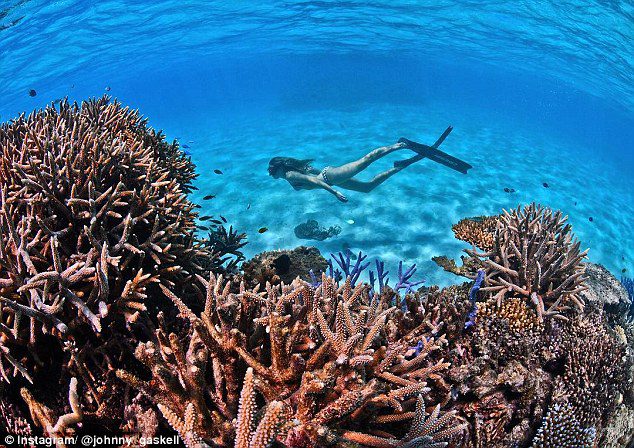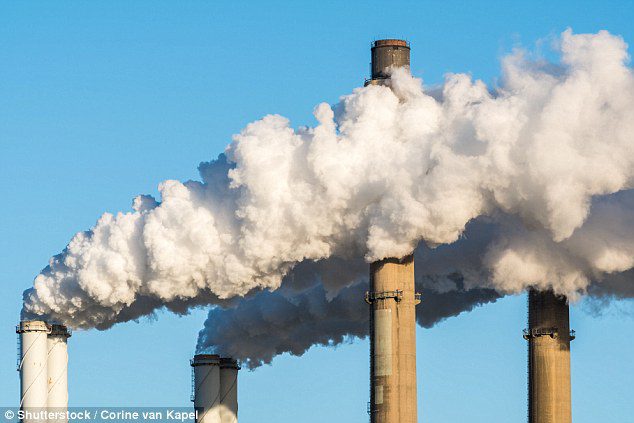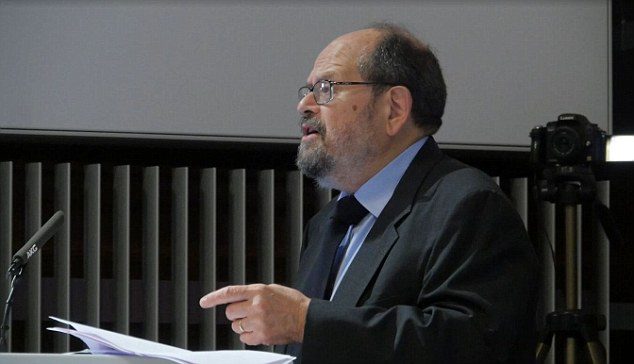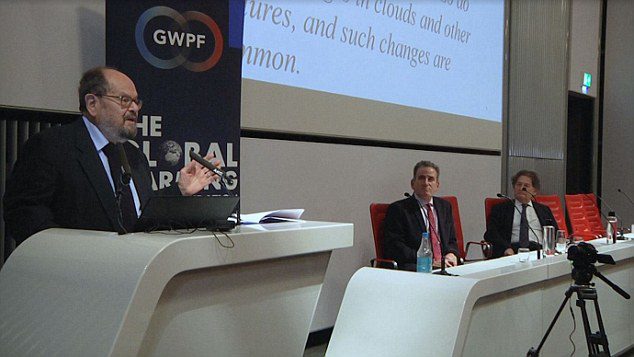A climate scientist said Australia’s coral reefs are not in danger in the wake of a UN report on climate change that he says is helping to overturn industrial civilization.
An Intergovernmental Panel on Climate Change (IPCC) report released earlier this week forecast doom if coal-fired power is not ended within 32 years, worldwide.
It predicted up to 90 percent of coral reefs would be lost if the earth warmed by 1.5 degrees Celcius by 2100, prompting fears for Australia’s Great Barrier Reef.

The latest IPCC report said coral such as Australia’s Great Barrier Reef (pictured) would vanish unless the world phases out coal power 32 years. Professor Lindzen says this is nonsense
But meteorology professor Richard Lindzen said the more alarmist climate claims were false and that there had been no significant warming for 20 years.
‘They aren’t in danger,’ said the US Academy of Sciences member who has written more than 200 papers on climate change and meteorology.
‘Ocean acidification actually means that the oceans might become a little less basic. Coral’s regularly survive such fluctuations.’
‘Moreover, it is well known that corals recover from bleaching.’
Professor Lindzen said Australia’s political class had gone completely bonkers in their response to climate change alarmism and hadn’t taken the time to actually read and understand the science.
‘I can’t imagine what suicidal instincts reside in Australia’s political class.’
‘In asking me to comment on the Australian response, you are asking the wrong person. You need to speak to someone specializing in abnormal psychology.’

These stacks are emitting water vapor, not carbon dioxide which is an invisible gas but it has become an iconic picture to show climate risk. Professor Lindzen is sick of misleading claims
Professor Richard Lindzen slammed conventional global warming thinking warming as ‘nonsense’ in a lecture for the Global Warming Policy Foundation on Tuesday.
‘An implausible conjecture backed by false evidence and repeated incessantly … is used to promote the overturn of industrial civilization,’ he said in London.
‘What we will be leaving our grandchildren is … a landscape degraded by rusting wind farms and decaying solar panel arrays.’

Professor Richard Lindzen slammed conventional thinking on global warming as ‘nonsense’ in a lecture for skeptical think tank Global Warming Policy Foundation
The IPCC report, authored by 91 climate scientists, forecast doom if coal-fired power is not ended within 32 years, worldwide.
Coal is one of Australia’s biggest exports.
In August alone, coal was Australia’s second biggest export behind iron ore, in dollar terms, with a market value of $5.5 billion, Australian Bureau of Statistics international trade figures showed.

Professor Lindzen said there has been no significant warming for 20 years. He believes that Australia’s holiday sanctuaries on the Barrier Reef (pictured) are safe after all
Professor Lindzen said the IPCC report this week had reduced the alleged tipping point from 2C to 1.5C because there had been no significant warming for 20 years.
‘Warming of any significance ceased about 20 years ago, and 2C warming was looking increasingly unlikely,’ he wrote in an email to Daily Mail Australia.
‘There was an obvious need for something more plausible to ‘sustain’ the renewables bubble.’

Professor Lindzen tells London that man-made climate change does not appear to be a serious problem. He was Professor of Meteorology for Massachusetts Institute of Technology until he retired in 2013, and says that much of accepted ‘politically correct’ knowledge is nonsense
Professor Lindzen said the IPCC report this week had reduced the alleged tipping point from 2C to 1.5C because there had been no significant warming for 20 years.
‘Warming of any significance ceased about 20 years ago, and 2C warming was looking increasingly unlikely,’ he wrote in an email to Daily Mail Australia.
‘There was an obvious need for something more plausible to ‘sustain’ the renewables bubble.’
If you know someone who might like this, please click “Share”!


